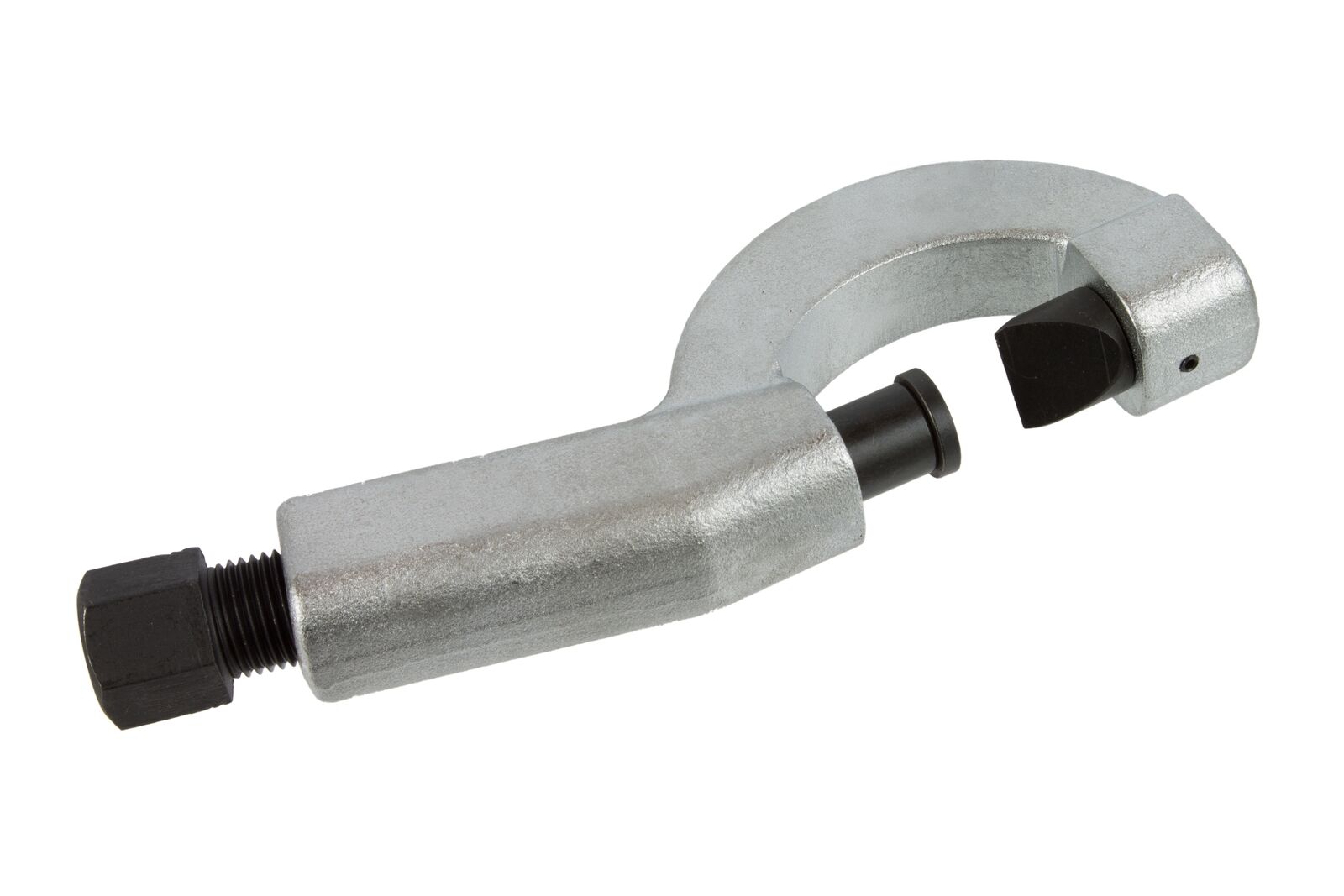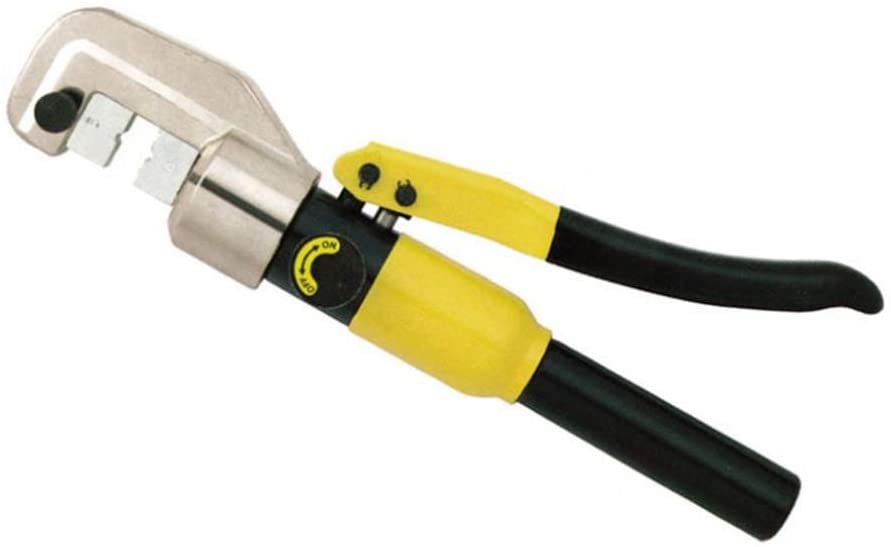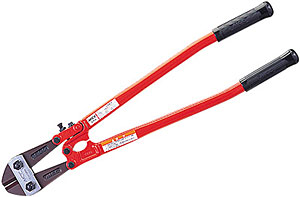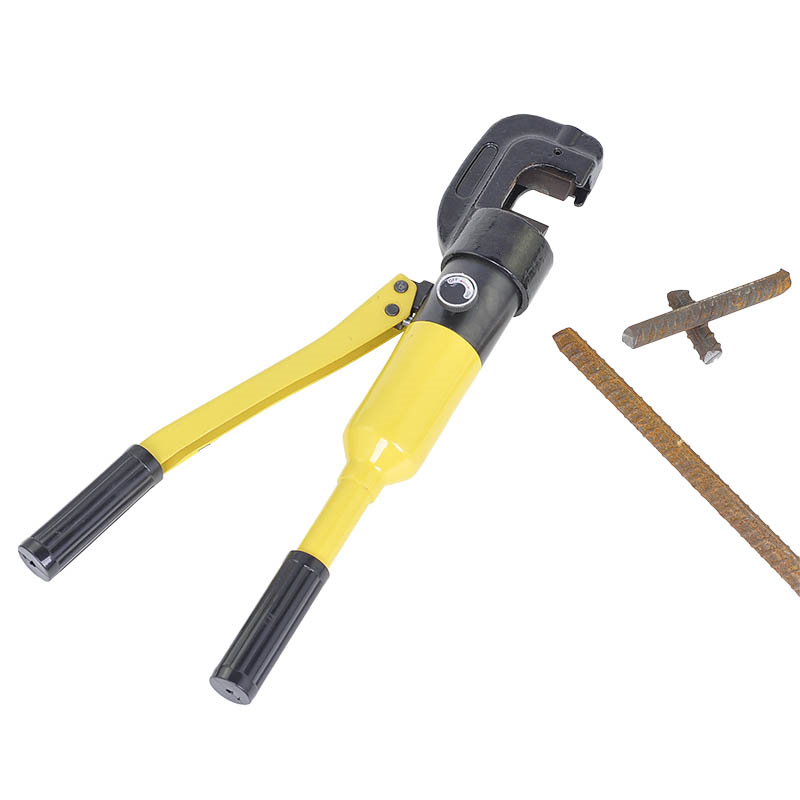Electric cordless rebar cutter
I'm not sure what kind of iron bars you need to cut, but there are tools called rebar cutters. If you look for cordless rebar cuttes you will find such tools, quite compact, but also very expensive. For example the Makita versions retails for around 1800 USD.
Angle grinder
When I've had to cut threaded rods at my job, I've used an angle grinder. It is a cheap and versatile tool, and this approach is both quick and easy.
However, I generally hate using an angle grinder and here is a list of reasons why.
- Gives very sharp burrs. It is possible to remove these with the angle grinder, but it sometimes take a surprising amount of time.
- It's a bit dangerous. Specially if you are in a tight spot and get tempted to use it in a less safe way, like holding it too close to your face.
- It shoots glowing metal at you, and burns your face, head and arms if they are exposed.
- Those glowing metal parts will soon make your clothes look brownish/burned, and holes start appearing.
- Noisy.
- Smelly. You risk inhaling these burned fumes, and I suspect they are not healthy.
- Risk of fire. It's not easy to start a fire with an angle grinder, but it does happen.
- Risk of setting of fire alarms. At construction sites with fire detection systems, we always need them to temporarily turn of those systems while we use angle grinders. And furthermore there are requirements for extra fire extinguishers within close reach.
Hand held cordless band saw
My company never gave me one, but I have seen plumbers and electricians use them for pipes and conduit of both plastic and metal and for threaded rods. They all they say that this tool is in almost every way a better tool than an angle grinders. The only drawback I know of, is that you sometimes need to clamp the pipe/rod down in a more rigid way than if using an angle grinder.




